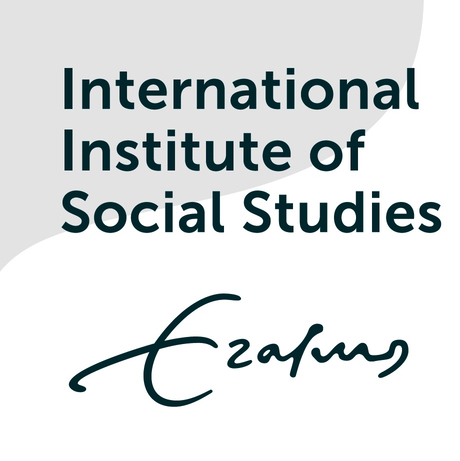Location
The International Institute of Social Studies (ISS) in The Hague is part of the Erasmus University Rotterdam (EUR).
It is a graduate institute of policy-oriented critical social science, founded in 1952 and able to draw on sixty years of experience.
ISS is a highly diverse international community of scholars and students from the global south and the north, which brings together people, ideas and insights in a multi-disciplinary setting which nurtures, fosters and promotes critical thinking and conducts innovative research into fundamental social problems.
Key to the ISS philosophy and practice is the wish to make a contribution to achieving social justice and equity on a global level. The strong partnerships with organizations and individuals in developing countries make up a network in which the co-creation of knowledge and an integrated approach to research and teaching can flourish and remain societally relevant.
ISS shares expertise with a wider public by providing high-level policy advice, serving as a platform for debate and the exchange of ideas and engaging in consultancy.
Members:
Resources
Displaying 11 - 15 of 17The neoliberal agricultural modernization model: A fundamental cause for large‐scale land acquisition and counter land reform policies in the Mekong region
Large-scale land acquisition are not new in the Mekong region but have been encouraged and have gathered momentum since the end of the 90s, particularly Cambodia, Laos, and Myanmar. These acquisitions are realized by national and foreign companies from the region, particularly China, Vietnam, and Thailand in a movement strongly associated with economic globalization and neo-liberal policies which promote free flow of capital at the regional and global level and the adaptation of national spaces to the requirement of liberal and global markets (Peemans, 2013).
Land deals in Laos: First insights from a new nationwide initiative to assess the quality of investments in land
In Laos land concessions have increased dramatically over the last decade. To provide a window into the concessions landscape, we conducted a nationwide inventory between 2007 and 2011. In response to an order by the Lao Government to its ministries, we developed a methodology to update the inventory and complement existing data with a systematic assessment of investment quality in 2014. We investigated aspects of compliance as well as impacts on livelihoods and the environment.
Authoritarian resource governance and emerging peasant resistance in the context of Sino-Vietnamese Tree Plantations, Southeastern Laos
Over the past decade, Laos has experienced a land rush by foreign investors seeking to gain large tracts of land for hydropower, mining, and plantation projects. The rapid pace of the phenomenon has prompted signif icant concern by international observers, Lao civil society, and certain sections of the government, regarding the impacts upon farmers that are dispossessed of their land and communal resources. However, both investors and peasant communities alike have differing experiences with the investment process.
Land concessions and rural youth in southern Laos
Scholars have produced valuable insights on the question of recent “land grabbing” in the global South. They have, however, insufficiently studied the issue from below, particularly from the point of view of a crucial group in the land conundrum: the rural youth. This paper brings to the fore the perspectives of Laotian rural youngsters amidst a hasty agrarian transition, in which the borisat (company) –in the form of large monoculture plantations– has permeated both the physical landscape and the daily narratives of people.
Allocation or appropriation? How spatial and temporal fragmentation of land allocation policies facilitates land grabbing in Northern Laos
The Lao Land and Forest Allocation Policy (LFAP) was intended to provide clearer property rights for swidden farmers living in mountainous areas. These lands are legally defined as “State” forests but are under various forms of customary tenure. The policy involves demarcating village territorial boundaries, ecological zoning of lands within village territories, and finally allocating a limited number of individual land parcels to specific households for farming.


